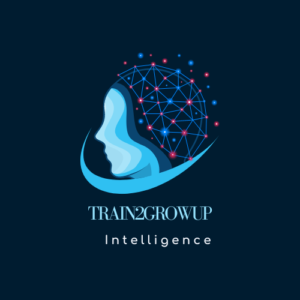Software Testing Overview
Why Join this Program?
High Demand and Career Opportunities
With the increasing reliance on software across all sectors, the demand for skilled software testers is consistently high
Skill Development and Growth
Gain expertise in various testing tools, frameworks, and methodologies, including automated testing, performance testing, and security testing.
Key Features of Software Testing
- Verification
- Validation
- Quality Assurance
- Risk Management
- Integration Testing
- Unit Testing
Software Testing Program Details
Joining the field of software testing offers numerous advantages and opportunities for career growth. Here are several compelling reasons to consider a career in software testing
Learning Path:
This course covers the fundamental concepts, techniques, and tools used in software testing. It provides hands-on experience with different types of testing, testing methodologies, and best practices to ensure the quality and reliability of software applications.
By the end of the course, participants will be able to:
- Understand and apply different testing methodologies and techniques.
- Design, execute, and manage various types of tests.
- Identify, document, and report defects.
- Use testing tools and frameworks for effective testing.
- Integrate testing into the software development lifecycle.
- Aspiring software testers and QA professionals
- Software developers looking to enhance their testing skills
- IT professionals interested in software quality assurance
- Basic understanding of software development concepts
- No prior testing experience required
- Overview: Understanding the basics of software testing.
- Topics Covered:
- Definition and objectives of software testing
- Importance of software testing in the software development lifecycle (SDLC)
- Types of testing: Manual vs. Automated
- Overview: Core principles and terminology in software testing.
- Topics Covered:
- Testing levels: Unit, Integration, System, and Acceptance
- Testing types: Functional and Non-Functional
- Test cases: Designing effective test cases and scenarios
- Defects: Identifying, documenting, and managing defects
- Overview: Hands-on techniques for manual testing.
- Topics Covered:
- Exploratory Testing
- Smoke Testing
- Sanity Testing
- Regression Testing
- User Acceptance Testing (UAT)
- Overview: Introduction to test automation.
- Topics Covered:
- Benefits and challenges of automation
- Tools and frameworks: Selenium, JUnit, TestNG
- Writing and executing automated test scripts
- Integrating automated tests into the CI/CD pipeline
- Overview: Evaluating software performance under various conditions.
- Topics Covered:
- Types of performance testing: Load, Stress, and Scalability
- Tools: JMeter, LoadRunner
- Analyzing performance metrics and identifying bottlenecks
- Overview: Ensuring the security of software applications.
- Topics Covered:
- Types of security testing: Vulnerability scanning, Penetration testing
- Tools: OWASP ZAP, Burp Suite
- Common security vulnerabilities and how to test for them
- Overview: In-depth exploration of testing methodologies.
- Topics Covered:
- Waterfall vs. Agile Testing
- Test-Driven Development (TDD)
- Behavior-Driven Development (BDD)
- Exploratory Testing and Session-Based Testing
- Overview: Managing and overseeing the testing process.
- Topics Covered:
- Test planning and strategy
- Test execution and reporting
- Test management tools: TestRail, Zephyr
- Metrics and KPIs for test performance
- Overview: Applying learned concepts to practical scenarios.
- Topics Covered:
- Case studies and real-world testing scenarios
- Hands-on projects to design and execute test plans
- Collaborating with development teams for effective testing
Course Duration:
Typically: 8 to 12 weeks, depending on the depth and format of the course.
Skills Covered
- Exploratory Testing
- Smoke and Sanity Testing
- Regression Testing
- User Acceptance Testing (UAT)
- Performance Analysis
- Security Testing
- Security Vulnerabilities
- Agile Testing
- Defect Analysis
- Test-Driven Development (TDD)
- Behavior-Driven Development (BDD)
- Performance Metrics


